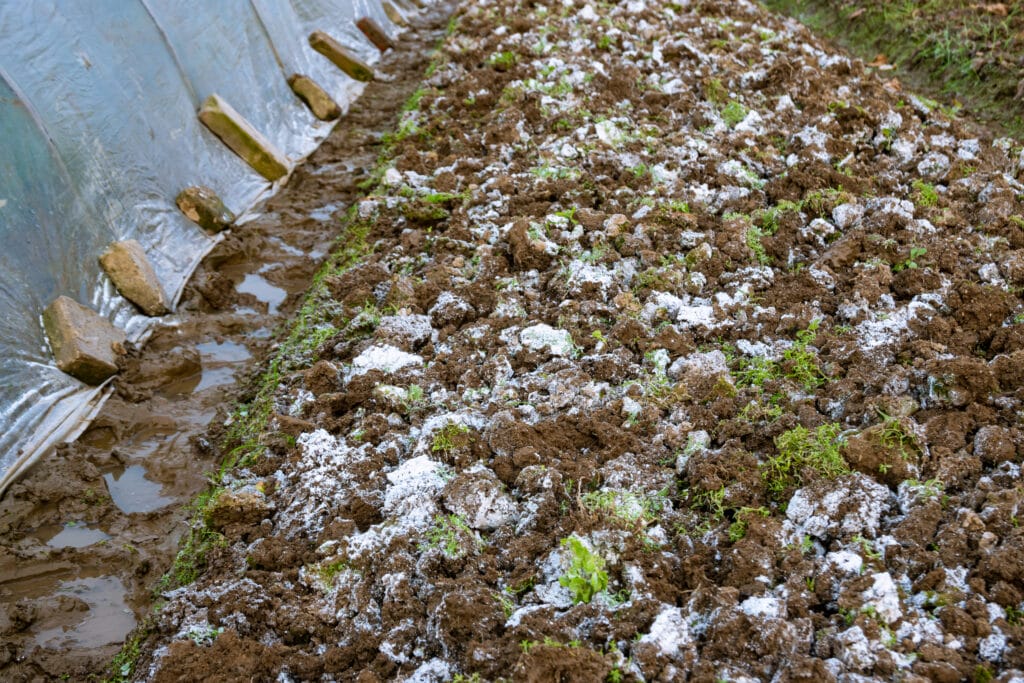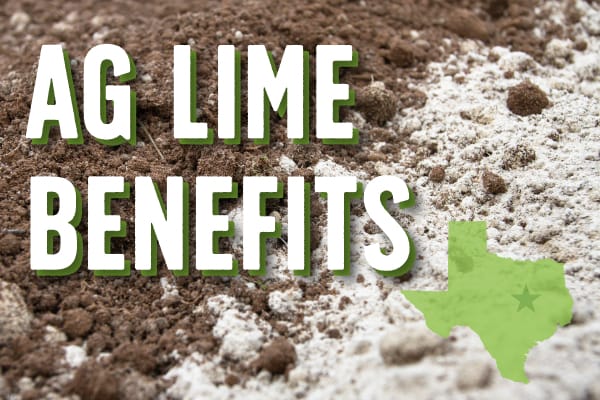The Crucial Role of Agricultural Lime in Soil Management and Crop Growth
In the agricultural field(s), maintaining optimal soil conditions is highly important for growing and harvesting successful crops. One essential tool to achieve this result is agricultural lime, or “ag lime,” a versatile substance primarily used to neutralize soil. Ag lime has been used for centuries to improve growing conditions for farm fields, gardens and even residential lawns.
Defining Agricultural Lime
Farmers often use the term “lime” when referring to the product ag lime; however, it’s very important to note that agricultural lime is not actually lime at all (lime is simply the chemical name for calcium oxide, CaO). Put simply, ag lime is limestone (CaCO3) that’s been crushed down to fine particles. Those pieces can range in size, from a powder-like texture to the size of small gravel.
For ag lime to work properly, it must dissolve in the soil solution. The smaller the particle, the faster it will dissolve and begin to neutralize the soil’s acidity. Having various particle sizes ensures that smaller particles will immediately start the process, and larger pieces will continue to work for several years. A single application of ag lime can be as high as 3 to 4 tons per acre, effectively managing the pH from 4 to 8 years.

Patience is required when applying ag lime, as it can take a full year before the soil reaches the desired pH level. Most farmers recommend tilling it in at the end of the growing season so that it can absorb and react before the following planting season.
Why Do Farmers Need Ag Lime?
Ag lime contains a significant amount of calcium, which works to neutralize the soil’s pH level and create a favorable environment for crops.
How does soil get “too acidic?” Most often, frequent use of fertilizers and other chemicals causes that problem; however, soil can also be depleted of nutrients after years of planting and harvesting crops. Ag lime helps this soil reach a pH level that promotes plant growth. Without it, farmers often see stunted growth and reduced crop yields.
Additional uses of ag lime include enhancing soil structure, which promotes better water retention and drainage, and breaking down organic matter, which fosters a healthy soil ecosystem. Each of these benefits contributes to improved fertility and overall crop productivity.

Ag Lime vs. Other Types of Lime
Key distinctions between ag lime (ground CaCO3) and true chemical lime (CaO) lie in how the products are made. Lime by definition is calcium oxide (CaO) and is often referred to by other names (chemical lime, burnt lime, calcined lime). Lime is produced by heating limestone (CaCO3) to over 2000 degrees Fahrenheit in a kiln. Lime has numerous uses, including soil stabilization, production of steel, glass, paper, paint and various other products. It has a PH value of 12.4 and is therefore considered caustic due to its high alkalinity. Lime (CaO) is not generally suitable for agricultural uses due to its high pH value. Ag lime is specifically formulated to meet the stringent standards required for soil enhancement. It is made from limestone (CaCO3) or dolomitic limestone (CaMg2CO3). Ag lime is finely ground to ensure quick reactivity and is rich in calcium and magnesium, essential nutrients that promote plant growth. Ag lime is dissimilar to Lime in that it’s not burned at high temperatures through a kiln and has a pH value that is slightly basic (above 7) but much lower than Lime, which has a pH value of 12.4.
The distinction between ag lime and actual Lime is incredibly important, as Lime itself can actually increase pH levels to values that cannot be sustained by plant life. Ag lime, on the other hand, is safer to use in the agricultural industry as it works to neutralize acidic soils.
Regularly monitoring soil pH levels is crucial to determine the appropriate dosage and frequency of application. When applied properly, ag lime has long-lasting effects and measurable results, which is why it stands as a cornerstone in modern farming practices.

